What are the arguments to end the coronavirus lockdown?
Cabinet ‘hawks’ and commentators say measures threaten economy and civil liberties
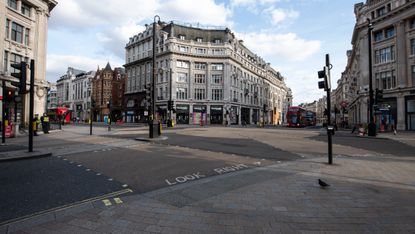
Pressure is growing on the government to begin the process of lifting the coronavirus lockdown, as cabinet “hawks” argue that it’s time to act.
The Guardian says the “hawks” include Chancellor Rishi Sunak, Cabinet Office Minister Michael Gove, and Trade Secretary Liz Truss. All three are “raising concerns about the impact of a lengthy shutdown on the economy,” the paper says.
Economic concerns are the cornerstone of arguments for ending the lockdown sooner rather than later.
Subscribe to The Week
Escape your echo chamber. Get the facts behind the news, plus analysis from multiple perspectives.

Sign up for The Week's Free Newsletters
From our morning news briefing to a weekly Good News Newsletter, get the best of The Week delivered directly to your inbox.
From our morning news briefing to a weekly Good News Newsletter, get the best of The Week delivered directly to your inbox.
Sunak has presented to ministers projections for the extent of business bankruptcies, unemployment and the gravity of the recession. Truss has argued that restoring global trade as quickly as possible is vital for the nation’s economic stability.
–––––––––––––––––––––––––––––––For a round-up of the most important stories from around the world - and a concise, refreshing and balanced takeon the week’s news agenda - try The Week magazine. Start your trial subscription today –––––––––––––––––––––––––––––––
Other Tory MPs have joined the chorus. Former environment secretary Theresa Villiers said that the economic damage of the lockdown could become “catastrophic”.
She argued: “It's so vital that we do find a way to let the economy start to come out of what is effectively a medically induced coma.”
The hawks also argue that there are negative impacts on health from a prolonged lockdown. A government adviser said the “public health consequences” of the restrictions include an uptick in domestic abuse and data showing that recessions cause an increase in deaths.
“Remember that if we stay locked down, this is having vital real-life consequences as well and we can lose thousands of lives through recession too,” said the adviser.
Yesterday, the Office for National Statistics reported deaths from non-coronavirus causes has increased, suggesting the lockdown may be having an indirect impact on health.
Another argument put forward is that the UK is already through the worst of the coronavirus. Carl Heneghan, director of the centre for evidence-based medicine at Oxford University, argues that the restrictions are no longer necessary and that a continued lockdown is “going to outweigh the damaging effect of coronavirus”.
Speaking to the Daily Mail, he claimed that deaths peaked on 8 April, and that the rate of infection peaked 21 days before that. He said that the government “has failed to look at all the data and understand when the peak of infections actually occurred”.
Finally, there is a civil liberties dimension. Peter Hitchens, a longstanding sceptic of the measures, wrote in the Mail on Sunday that “the government are trying to get us to accept a far higher level of state intrusion in our lives than we have ever endured” and “treating us as if we were unruly children”.
This proposition was bolstered when the UK justice secretary Robert Buckland told the parliamentary select committee for human rights that the “very nature of the measures” needed to stop coronavirus was curtailing rights. However, Buckland added that the measures also uphold the right to life.
Create an account with the same email registered to your subscription to unlock access.
Sign up for Today's Best Articles in your inbox
A free daily email with the biggest news stories of the day – and the best features from TheWeek.com
-
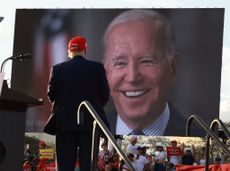 'Voters know Biden and Trump all too well'
'Voters know Biden and Trump all too well'Instant Opinion Opinion, comment and editorials of the day
By Harold Maass, The Week US Published
-
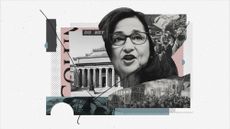 Is the Gaza war tearing U.S. campuses apart?
Is the Gaza war tearing U.S. campuses apart?Today's Big Question Protests at Columbia University, other institutions, pit free speech against student safety
By Joel Mathis, The Week US Published
-
 DOJ settles with Nassar victims for $138M
DOJ settles with Nassar victims for $138MSpeed Read The settlement includes 139 sexual abuse victims of the former USA Gymnastics doctor
By Justin Klawans, The Week US Published
-
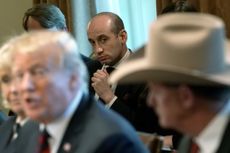 Inside Trump's plan to fight 'anti-white racism' in the White House
Inside Trump's plan to fight 'anti-white racism' in the White HouseIn Depth The former president is planning to fundamentally flip America's civil rights protections if he wins a second term in office
By Rafi Schwartz, The Week US Published
-
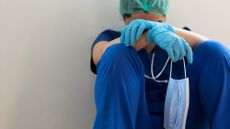 Less than total recall
Less than total recallEditor's Letter Why our brains want to forget the darkest days of the pandemic
By Theunis Bates Published
-
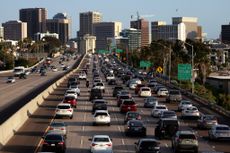 'A wonky bureaucratic tweak has dramatically changed how Americans drive'
'A wonky bureaucratic tweak has dramatically changed how Americans drive'Instant Opinion Opinion, comment and editorials of the day
By Harold Maass, The Week US Published
-
 Will Aukus pact survive a second Trump presidency?
Will Aukus pact survive a second Trump presidency?Today's Big Question US, UK and Australia seek to expand 'game-changer' defence partnership ahead of Republican's possible return to White House
By Sorcha Bradley, The Week UK Published
-
 'Mississippi sheriffs wield a tremendous authority in the counties they police'
'Mississippi sheriffs wield a tremendous authority in the counties they police'Instant Opinion Opinion, comment and editorials of the day
By Harold Maass, The Week US Published
-
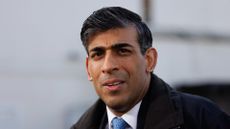 It's the economy, Sunak: has 'Rishession' halted Tory fightback?
It's the economy, Sunak: has 'Rishession' halted Tory fightback?Today's Big Question PM's pledge to deliver economic growth is 'in tatters' as stagnation and falling living standards threaten Tory election wipeout
By Harriet Marsden, The Week UK Published
-
 'A ridiculous amount of money pledged to someone who already was absurdly rich'
'A ridiculous amount of money pledged to someone who already was absurdly rich'Instant Opinion Opinion, comment and editorials of the day
By Harold Maass, The Week US Published
-
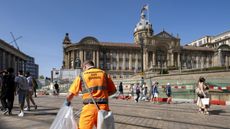 Why your local council may be going bust
Why your local council may be going bustThe Explainer Across England, local councils are suffering from grave financial problems
By The Week UK Published